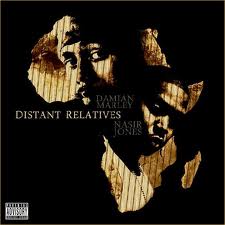By Nasta
According
to The Chinese Zodiac, the period 3rd February 2011 to 22nd
January 2012 has been referred to as the year of the Rabbit. Bring it home and
you find a rapper named Rabbit, who has experienced a tremendous rise
since getting into the game two years back.
Early
in the year Rabbit released a critically acclaimed mixtape titled ‘King’, but
as it has come to pass, this rapper wasn’t going to let the year of the Rabbit pass by
with just mixtape as the only offering (bearing in mind that the next year of
the Rabbit will be in 2023), hence he dropped a sophomore album Orutu Ya Masudi.
Having
been around during much of the production of this album, my anticipation of the
final product wouldn’t have been overemphasized. But then again, I needed someone
else’s perception before finalizing my review. Chris Prodigy a seasonal Hip-hop enthusiast
states that “One thing which is conspicuously noted; in Orutu ya masudi, Rabbit
tends to overly utilize his prowess when it comes to storytelling and he
appears to be more confident and complacent” he also adds that, “Orutu is more
of an introspective album, compared to Tales (Rabbit’s first album) which is more
lyrical”
This
album opens up with the intro track “Masudi”
in which we hear an old man’s voice calling on the village people in Dholuo
(Luo language), asking them to come and listen to him (the old man) play Orutu(a
traditional musical instrument amongst the Luo community) . Rabbit then steps in saying that the
old man is Masudi, his grandfather and states that it is from his grandfather
where his musical journey started. The intro, Masudi is a careful
balance between lyrical punchilines and poetic consciousness that unveils a
very reflective and sensitive side of Rabbit.
Better
days featuring Aziza the band, is the second track-a definite
favorite to any female listener. The track is a sad relationship saga, where
one partner travels for overseas studies, only to return and find that the once
upon time love has faded off and no longer as strong as it once was. The live
instrumentation is something very refreshing and soothing to the ear.
Punguza
is a witty feel good song in which Rabbit aka Kaka Sungura narrates about his
conversion with a girl at a bar in Kisumu, the wittiness in the song comes when
Rabbit can’t understand the girl who only communicates in Dholuo, and the girl
can’t understand the rapper who only speaks Swahili. Rabbit calls his friend Nebulaz (A Kisumu based rapper) to help him out,
only for him to get sliced by Nebulaz. Though not a totally new concept, as it
follows on Noorah's Lugha Gongana hit, it is still a track that one
wishes to listen to, and would receive a favorable DJ play from your favourite
pub.
Now,
if you are into the deep meditative kind of Hip-hop, here is where you get enjoy music. "Najikataza nisi iangalie juu hio uni haunt kila mara/ lakini jana yetu ndio ufanya kesho imara" these are the opening lines to, Yesterdays; a very deep and introspective song where Rabbit incorporates three different
personal stories with respect to personal conflicts, family relations, love and loyalty friendship. Equally deep and Personal is Mama, a song dedicated
to his mother Queen Liz.
Twisti
is a definite big tune that when released promises to take Kenyan party
scene by Tsunami as the official party anthem. Sampling the tune and
voice of the late twisty legend mzee Daudi
Kabaka, the track is good bridge between the our fathers’
zilizopendwa kind of music, and the new age rap music. As much as it is a party anthem, the rapper
still does good with flickers of wordplay every so often throughout the song.
Both
Bangaiza and Lazima kuhappen follow the party theme
that is in Twsti, and if your life revolves around clubbing in the big city,
then you need to add these two tracks on your favorite track list. While Bangaiza
proves that when done right, the crunk beat is still relevant and very
danceable, lazima kuhappen is on some grimy beats that would work well
with a lyrical slaughter track.
Taxi driver featuring Poet cum
obakano player & singer, Grandmaster Masese has a great movie like story
line, only that the bumpy beat that fuses the Obakano string, tends to
overshadow this one hell of a story.
Following
in the story telling trail is a tragic Hiphop ballad titled ‘Kiwewe’ in which Rabbit introduces the
coastal based vocalist Bwenyenye. Kiwewe is a type of song that every
beautiful girl would wish to hate, but still play it over and over again.
Bwenyenye
whose style of singing can easily be mistaken to Bongo music, proves that he
too can get conscious. On Kaza Moyo he is incorporated by Rabbit
alongside a very conscious and lyrical Dann
Dan of the 125 crew, to present a socio-political conscious rap.
Kaza moyo is a testimony enough that Rabbit is far from abandoning his Hip-hop
roots, and that revolution mindset that Kshaka set rolling years back is far
from waning off.
Staki Kukuona
has been around for quite sometime now, and if you haven’t listened to it, then
“nani tembea, na staki kuku ona”
Both
Takeova ft. Qritikal and Kata na Shoka ft. Kijana Masha and Ordinary, exposes Rabbits's lyrical side that was exposed in his debut
album and his King Mixtape. On the former track produced by Sniper, Rabbit steps to stamp his authority amongst his industry peers. The song opens up with the lines;
"Wakikazana na ma omena, mi nina bigger fish to fry"
then proceeds
"Nina mimba ya mistari na mi uzaa kila siku/
ninapendwa na umati, we ni nani unionie wivu/
hii crown nimevaasio rahisi vile una kiche"
While on the former Ordinary proves to match Rabbits's
lyricism thus far , Kijana Masha of Kalahari
tends to come-through abit off-key with his rhymes.
Salam
Aleikum featuring Ngallah of the group Yunasi is a
calm concept track, narrating a marriage ceremony between a coastal lady
(Rehema) and Luo lad (Otieno). The instrumentation of the song is purely
acoustic and a good one for any wedding. It is amazing how Rabbit’s style blend
well with Ngallah’s, as they give you a feeling that they’ve been a musical pair
for eons.
Freedom
is Orutu’s second track from the bottom, and it heavily uses the silky voice of
Christine Apondi-the
only idol we get to see, since the last edition of
Mnet’s Realty TV. This highly intellectual song is yet another well crafted
concept track, highlighting different meanings of what freedom is to the
rapper.
 |
| Christine Apondi |
Unlike
in Tales of Kaka Sungura, which finishes with a vote of thanks outro, Orutu ya
Masudi is closed on a rather aggressive note. Kredo ya mkopo the album’s final
track is a subliminal diss to a wide array of artistes, most notably those who
are in the habbit of bad mouthing rappers who receive airplay as
being ‘commercial’. With lines like “Heshimu miaka/ unafanya nini kwa playground
na watoi" and "Ati US tour na uko club ndogo Alaska/so ile doh
unakanjwa uko ndio na kanjwa hapa" the song comes as an indirect
retaliation to Collo's Kuwa Mpole, which was widely viewed as a diss to
Rabbit. The two rappers are both claiming the 'King Wa Rap' title.
All
said and done, this album shows growth and progression of Rabbit as an
artiste. He has come off-age to understand the dynamics of music, and
more than ever before, he shows just how comfortable he is working with
different producers (who include Sniper of G'ganji,
Provoke and Dice amongst others). Overally out of a 60 minute rating Dakika
gives this album which retails at Ksh.250/= and comes with a 2 hour Documentary
DVD, a 45 Mins.





































